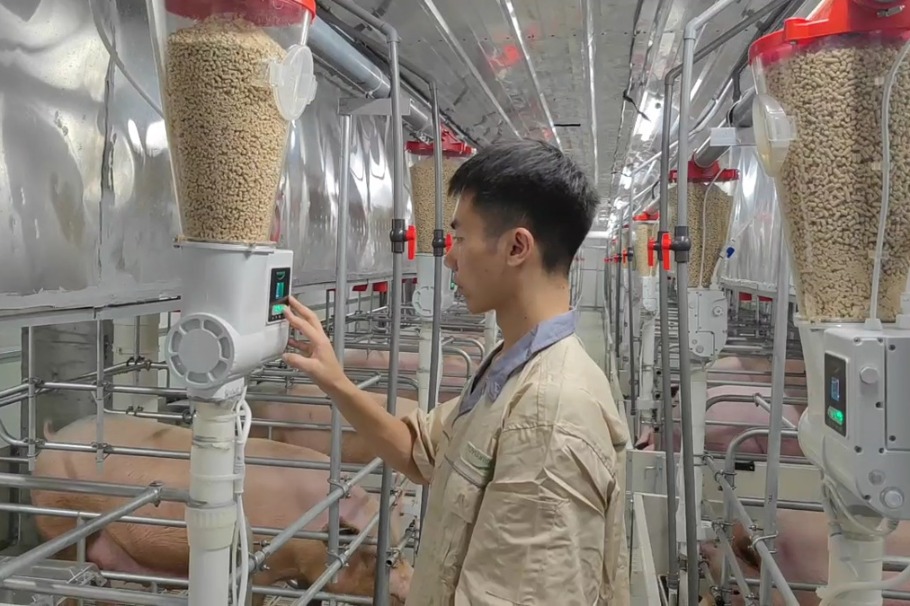Panda pair heading to Zoo Berlin in 15-year agreement on conservation

 |
| Jiao Qing, 7, a male panda, eats bamboos at the Chengdu Panda Research Base on May 3, 2017. [Photo/Xinhua] |
Sichuan has worked with over 10 countries in panda conservation, said Liu Bing, deputy chief of the provincial forestry department.
Zhang Zhihe, head of the Chengdu base, said that his facility alone has collaborated with 13 foreign zoos in scientific research into pandas, including zoos in the United States, Japan and Canada.
The base was set up in 1987 with six ill, hungry pandas rescued from the wild when bamboo, the pandas' staple food, bloomed in the 1980s.
Bamboo dies after it flowers. It is now home to 176 captive pandas, thanks to Chinese researchers having solved the primary obstacles hindering the mating of pandas and the survival of their cubs in captivity.
The pandas' home in Germany will cover about 5,500 square meters and Zoo Berlin will do its utmost to make the pandas feel at home, according to its head, Andreas Knieriem.
It is the third time that Zoo Berlin has hosted giant pandas.
In 1980, after West German Chancellor Helmut Schmidt visited, China sent Bao Bao and Tian Tian as a state gift to the country.
Tian Tian died in 1984, but Bao Bao lived to the ripe old age of 34, the equivalent of 102 in human terms, dying in 2012.
In 1995, China loaned Yan Yan, a female panda, to Zoo Berlin. In 2007, she died at the age of 22.
- SCIA elevates global reach with launch of new English website
- Legacy of Tea Horse Road lives on in Yunnan village
- Brewing rich legacy of tea culture
- China's unfolding story of innovation, unity and influence
- Investment in water projects bears fruit
- China, Russia vow to foster cooperation, deepen ties





































